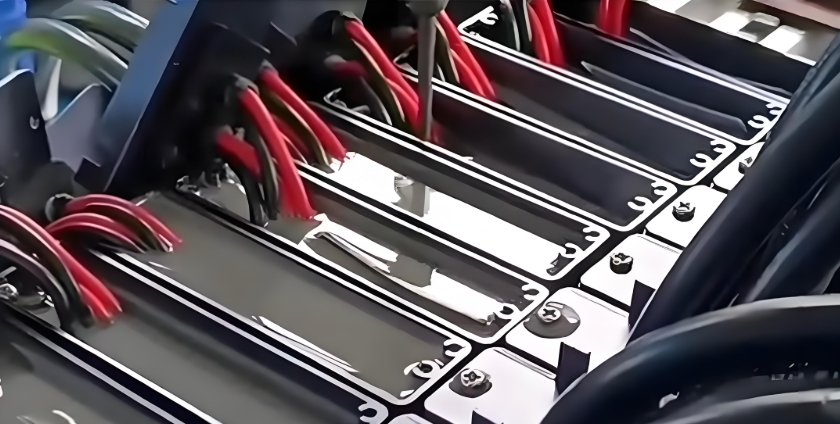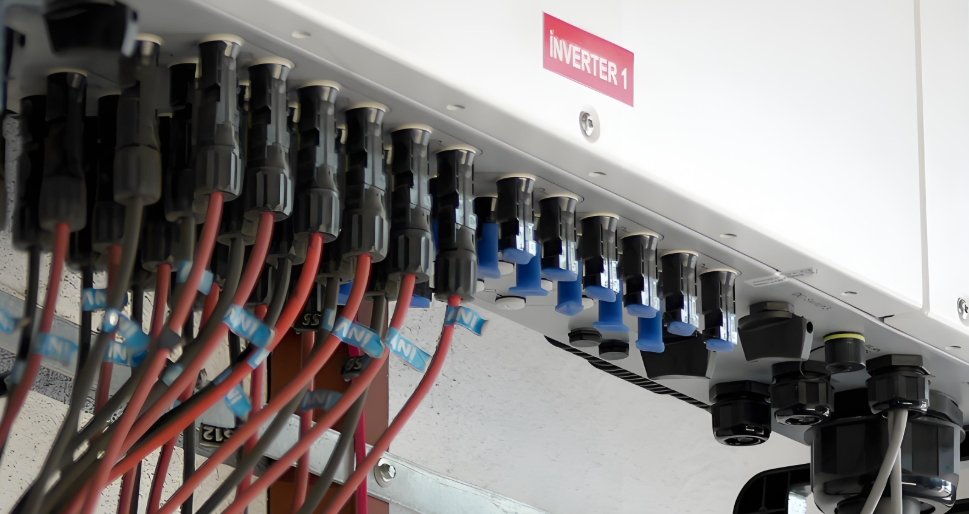
Residential solar panel complex
When selecting an inverter for a solar energy system, one important factor to consider is its IP (Ingress Protection) rating. The IP rating indicates how well the inverter is protected against dust, moisture, and other environmental factors. Proper sealing and an appropriate IP rating are essential for ensuring that the inverter performs optimally in various environments, especially in outdoor or harsh conditions. In this article, we will explore what the IP rating of an inverter means, how it affects its performance in different environments, and why sealing is crucial for longevity and efficiency.
Understanding the IP rating and its role in protecting inverters is essential for choosing the right model for your system. Let’s dive into its significance.
What Does the IP Rating of an Inverter Indicate About Its Protection?
The IP rating of an inverter refers to the level of protection it provides against the intrusion of solid objects (such as dust) and liquids (such as water). It is usually expressed as “IP” followed by two digits, where the first digit represents the level of protection against solids and the second digit represents protection against liquids.
Let’s explore what the IP rating means and what it indicates about an inverter’s protection capabilities.
Understanding the IP Rating
-
First Digit – Protection Against Solids:
- The first digit in the IP rating indicates the level of protection the inverter has against dust, dirt, and other solid objects. The higher the number, the better the protection. For example, an IP65 rating means the inverter is completely dust-tight (level 6) and has no entry of dust particles that could affect its performance. To learn more about solid protection levels, visit here1.
-
Second Digit – Protection Against Liquids:
- The second digit indicates the inverter’s resistance to moisture and water. Higher numbers represent better protection. For instance, a 5 in the second digit means the inverter is protected from water jets, while a 7 means it can withstand temporary immersion in water. More information on liquid protection levels can be found here2.
Conclusion: The IP rating is an essential indicator of an inverter’s ability to protect itself from dust and water, ensuring reliable operation, especially in outdoor or harsh environments. Higher IP ratings offer better protection against environmental factors.
How Does the IP Rating Affect the Inverter’s Suitability for Outdoor and Harsh Environments?
Inverters are often installed in outdoor environments, where they are exposed to rain, dust, and temperature variations. The IP rating plays a critical role in determining whether the inverter can withstand these harsh conditions without suffering damage or reduced performance.
Let’s examine how the IP rating affects an inverter’s suitability for outdoor and harsh environments.

Solar battery pack wiring
Impact of IP Rating on Outdoor Suitability
-
Protection Against Dust:
- An inverter with a high first-digit rating (e.g., IP65 or IP66) provides complete protection against dust and dirt, preventing it from entering the unit and causing internal damage. This is particularly important in areas with heavy dust or pollution, as dirt particles can interfere with the inverter’s cooling system or internal electronics. To understand more about dust protection levels, refer here3.
-
Protection Against Water:
- The second digit of the IP rating indicates how well the inverter is protected against water. In outdoor environments, inverters are often exposed to rain or water splashes. A rating of IP65 means the inverter is protected against water jets, while IP66 offers better protection, ensuring the inverter can handle heavy rain or water exposure. Learn more about water protection levels here4.
-
Temperature Extremes:
Conclusion: The IP rating directly affects an inverter’s ability to perform in outdoor and harsh environments. Higher IP ratings (such as IP65, IP66, or IP67) ensure that the inverter is dust- and water-resistant, making it ideal for locations where it will be exposed to the elements.
Why Is Proper Sealing Crucial for Inverters in Terms of Longevity and Efficiency?
Proper sealing plays a vital role in the longevity and efficiency of inverters. Seals prevent dust, dirt, and moisture from entering the inverter, which can damage its internal components. Additionally, proper sealing helps maintain optimal performance by ensuring that the inverter operates at the right temperature.
Let’s explore why sealing is crucial for inverters and how it impacts their overall performance.

Ground-mounted solar inverters
Importance of Sealing for Longevity and Efficiency
-
Protecting Internal Components:
- Proper sealing prevents external elements like dust, dirt, and moisture from entering the inverter. If these elements get inside, they can damage sensitive electronics, leading to malfunctions or reduced efficiency. Seals are particularly important for protecting the inverter’s cooling system, which must remain free from blockages to ensure optimal performance. To learn more about how dust and dirt can affect electronics, visit here6.
-
Temperature Control:
- Inverters generate heat during operation, and efficient cooling is essential for preventing overheating. A well-sealed inverter helps maintain an optimal temperature inside, reducing the risk of overheating. Seals prevent dust buildup inside the inverter that could obstruct airflow, ensuring that the cooling system works as intended. Explore more about temperature control in inverters here7.
-
Water Resistance:
- Seals also provide protection against water, preventing rain or splashes from reaching the internal components of the inverter. This is especially important for inverters installed outdoors, where exposure to moisture is common. For more on water resistance and its importance, check out this article8.
Conclusion: Proper sealing is essential for the longevity and efficiency of an inverter. It prevents dust, dirt, and moisture from damaging internal components, helps maintain temperature control, and ensures that the inverter operates efficiently over the long term.
How Do Different IP Ratings Impact the Performance and Durability of Inverters?
Inverters are available with various IP ratings, and the level of protection they provide can significantly impact their performance and durability. Let’s look at how different IP ratings affect the reliability of inverters in various environments.
Understanding the implications of different IP ratings will help you select the best inverter for your specific needs.

Solar inverter connections
Impact of Different IP Ratings on Performance and Durability
-
IP54 to IP65 – Residential and Light Commercial Use:
- IP54: Provides protection against limited dust ingress (not entirely dust-tight) and protection against water splashes from any direction. Suitable for residential installations in mild climates where the inverter is sheltered from direct rain or dust storms. Learn more about IP54 protection here9.
- IP65: Offers complete protection against dust and water jets from any direction, making it ideal for residential and light commercial applications. This rating ensures that the inverter can withstand moderate outdoor exposure, such as rain and dust, ensuring long-term performance in most environments. Find out more about IP65 here link10.
-
IP66 to IP67 – Harsh Commercial and Industrial Environments:
- IP66: Provides protection against powerful water jets and total dust ingress. This is a great choice for inverters installed in more challenging environments, such as near coastal areas with heavy rain or dust storms. Read more about the benefits of IP66 protection here11.
- IP67: Inverters with an IP67 rating can withstand temporary immersion in water, making them perfect for areas where flooding or heavy rains are frequent. This rating provides the highest level of protection for harsh conditions and ensures durability over the long term. Learn more about IP67 here link12.
-
IP68 – Extreme Outdoor Use:
Conclusion: The higher the IP rating, the more protected the inverter is from dust, water, and environmental damage. For residential use in mild environments, an IP65 rating is typically sufficient, while commercial and industrial applications may require higher IP ratings (IP66, IP67, or IP68) for extreme weather conditions.
Conclusion
The IP rating of an inverter is a crucial factor in determining its suitability for different environments. Higher IP ratings, such as IP65, IP66, and IP67, provide better protection against dust and moisture, making inverters more durable and reliable in outdoor and harsh environments. Proper sealing ensures the inverter operates efficiently by protecting its internal components from damage and maintaining optimal performance.
When choosing an inverter for your system, consider the environmental conditions where it will be installed and select an inverter with the appropriate IP rating to ensure longevity, efficiency, and reliability.
-
Learn more about solid protection levels
Explore the different solid protection levels of inverters and what each number means. ↩ -
Learn more about liquid protection levels
Understand how the second digit of the IP rating indicates resistance to moisture and water. ↩ -
Learn more about dust protection levels
Discover how different levels of dust protection impact inverter performance in dusty environments. ↩ -
Learn more about water protection levels
Find out how the second digit of the IP rating protects the inverter from water damage, ensuring reliability in wet conditions. ↩ -
Learn about inverter performance in varying temperatures
Understand how temperature extremes affect inverter operation and which IP-rated models can withstand harsh weather conditions. ↩ -
Learn more about how dust and dirt affect electronics
Discover how external elements like dust can damage sensitive inverter components and reduce efficiency. ↩ -
Learn about temperature control in inverters
Find out how proper sealing and temperature management ensure optimal inverter performance and longevity. ↩ -
Learn about the importance of water resistance
Explore how water resistance and sealing mechanisms protect inverters, particularly in outdoor installations. ↩ -
Learn more about IP54 protection
Discover the benefits of IP54 protection for residential installations. ↩ -
Learn more about IP65 protection
Find out how IP65 ensures long-term performance in moderate outdoor environments. ↩ -
Learn more about IP66 protection
Explore how IP66 provides the highest level of protection in harsh environments. ↩ -
Learn more about IP67 protection
Understand why IP67 is perfect for areas with flooding or frequent rains. ↩ -
Learn more about IP68 protection
Find out why IP68 is ideal for extreme outdoor conditions. ↩



